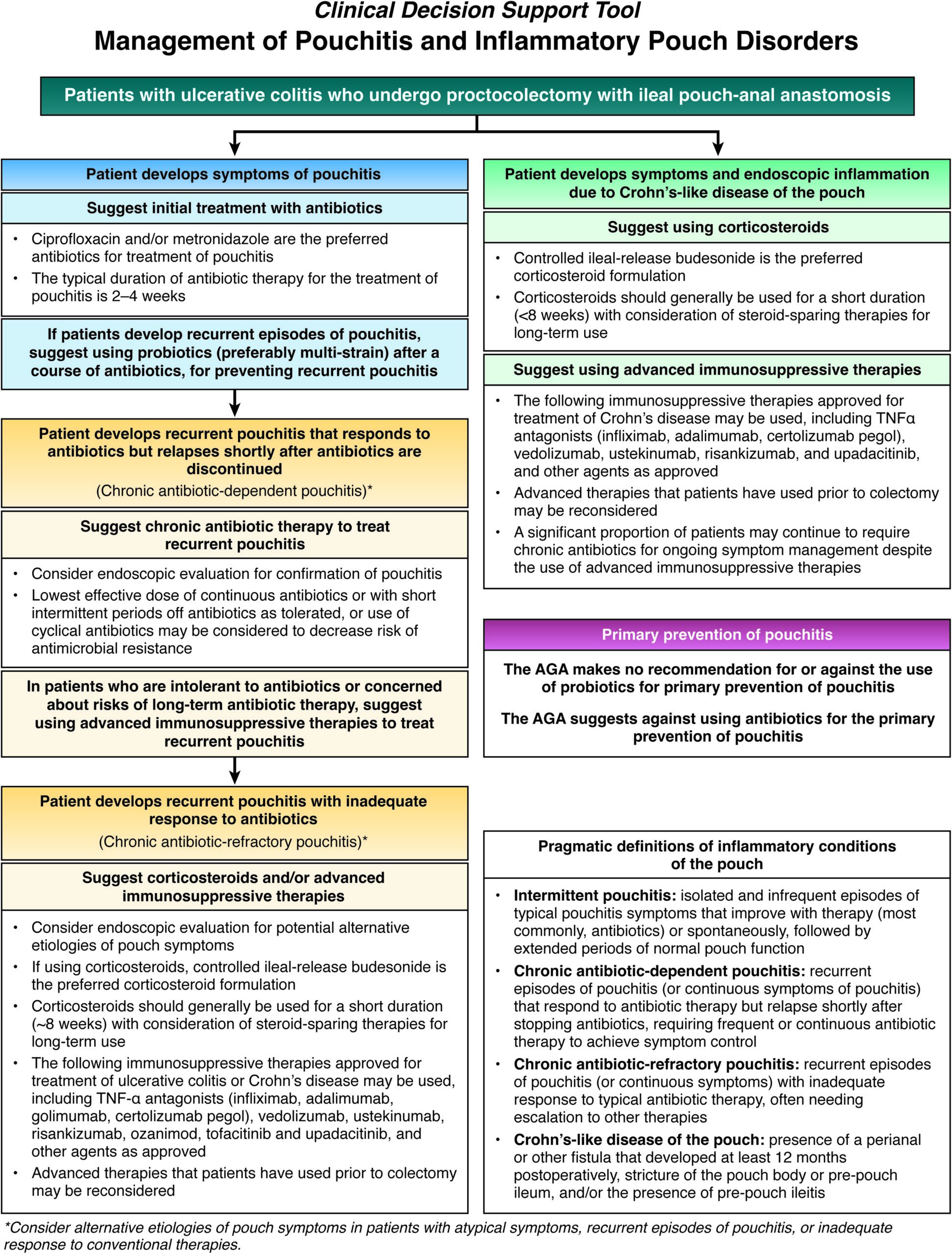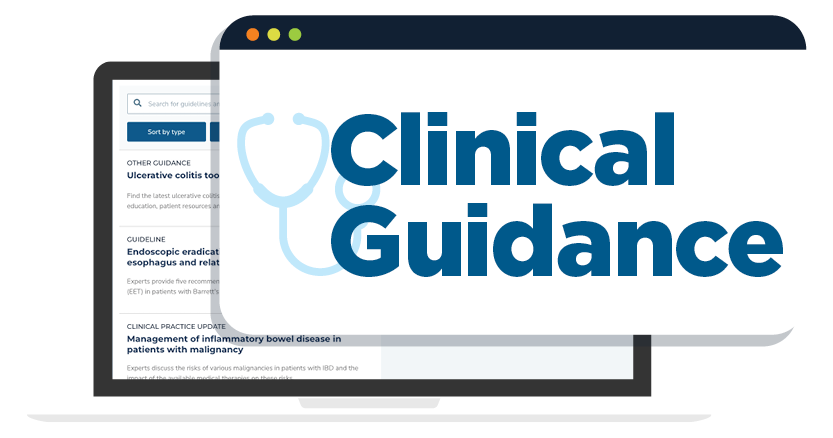1. In patients with ulcerative colitis who undergo IPAA, the AGA makes no recommendation in favor of, or against, the use of probiotics for primary prevention of pouchitis.
2. In patients with ulcerative colitis who undergo IPAA, the AGA suggests against using antibiotics for the primary prevention of pouchitis.
3. In patients with ulcerative colitis who have undergone IPAA and experience infrequent episodes of pouchitis, the AGA suggests using antibiotics for treatment of pouchitis .
4. In patients with ulcerative colitis who have undergone IPAA and experience infrequent episodes of pouchitis, the AGA makes no recommendation in favor of, or against, the use of probiotics for the treatment of pouchitis.
5. In patients with ulcerative colitis who have undergone IPAA and experience recurrent episodes of pouchitis that respond to antibiotics, the AGA suggests using probiotics for preventing recurrent pouchitis.
6. In patients with ulcerative colitis who have undergone IPAA, and experience recurrent pouchitis that responds to antibiotics but relapses shortly after stopping antibiotics (commonly referred to as chronic antibiotic-dependent pouchitis), the AGA suggests using chronic antibiotic therapy to treat recurrent pouchitis.
7. In patients with ulcerative colitis who have undergone IPAA, and experience recurrent pouchitis which responds to antibiotics but relapses shortly after stopping antibiotics (commonly referred to as chronic antibiotic-dependent pouchitis), the AGA suggests using advanced immunosuppressive therapies to treat recurrent pouchitis.
8. In patients with ulcerative colitis who have undergone IPAA, and experience recurrent pouchitis with inadequate response to antibiotics (commonly referred to as chronic antibiotic-refractory pouchitis), the AGA suggests using advanced immunosuppressive therapies.
9. In patients with ulcerative colitis who have undergone IPAA, and experience recurrent pouchitis with inadequate response to antibiotics (commonly referred to as chronic antibiotic-refractory pouchitis), the AGA suggests using corticosteroids.
10. In patients with ulcerative colitis who have undergone IPAA, and experience with recurrent pouchitis with inadequate response to antibiotics (commonly referred to as chronic antibiotic-refractory pouchitis), the AGA suggests against the use of mesalamine for treatment of pouchitis.
11. In patients with ulcerative colitis who have undergone IPAA, and develop symptoms due to Crohn’s-like disease of the pouch, the AGA suggests using corticosteroids.
12. In patients with ulcerative colitis who have undergone IPAA and develop symptoms due to Crohn’s-like disease of the pouch, the AGA suggests using advanced immunosuppressive therapies.
13. In patients with ulcerative colitis who have undergone IPAA, and develop symptoms due to cuffitis, the AGA suggests using therapies that have been approved for the treatment of ulcerative colitis, including topical 5-aminosalicylates, topical corticosteroids, etc.













